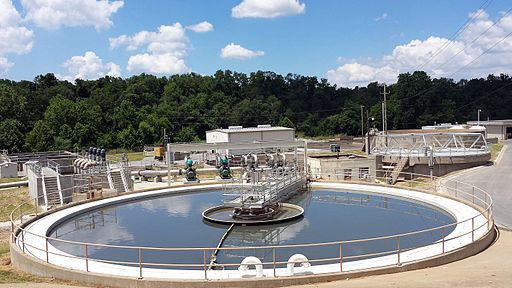

Cleaning up wastewater, which can pose a great threat to the environment, is no picnic. But according to a new study, it may help solve some of the world’s toughest problems. This week, researchers demonstrated a new technology that can not only clean our wastewater, but lessen greenhouse gas emissions and generate energy.
The Dirty Business of Cleaning Our Waste:
The amount of waste we generate is staggering. Each year, municipal facilities—which bear the brunt of cleanup responsibilities—treat about 12 trillion gallons of wastewater…and that’s just in the United States. And cleaning all of this waste with current technology takes a lot of energy. In fact, an estimated 3% of all the electricity produced in the US is allocated to this task. That doesn’t even include another 93 trillion gallons of industrial wastewater, which typically demands even more energy.
Furthermore, our waste is a substantial source of carbon dioxide (CO2)—a greenhouse gas. Since CO2 is released when the organic materials in our waste degrade, and when fossil fuels are burned to power the cleanup machinery, the issue is twofold. Indeed, scientists estimate that wastewater accounts for about 1.5% of the global greenhouse gas emissions.
There’s clearly room for improvement in this system, and there has been over the years, especially where lessening the amount of fossil fuel we use is concerned.
The Gold Mine Hiding In Our Waste:
Now, a new study—published in the journal of Environmental Science and Technology—experimented with a different approach. This time, the researchers focused on the chemical energy hiding in our wastewater. And thus, an innovative treatment technology was born: Microbial Electrolytic Carbon Capture (MECC).

In short, MECC purifies wastewater, while capturing CO2 and generating energy in the form of hydrogen (H2). Of particular note, the MECC reactions not only utilize CO2 from the wastewater, but from additional sources as well, thereby potentially reducing greenhouse gases released into the atmosphere. Furthermore, in the MECC reactions, CO2 is converted to bicarbonate, which can be harvested and used in the water treatment process.
The MECC does require silicate minerals and a low energy input; however, these minerals are readily available and the MECC process releases excess hydrogen gas, which can be stored in a fuel cell. So, overall, energy is gained in the process. In fact, the study estimated that, if utilized with US municipal wastewater, there’s potential to capture 50 million tons of CO2 and 1.5 million tons of H2.
Furthermore, the study points out that wastewater plants are often situated near power plants, refineries and cement plants. And since these industries are under pressure by the Environmental Protection Agency’s Clean Power Plan, MECC technology could help capture their excess CO2.
Indeed, “this energy-positive, carbon-negative method could potentially contain huge benefits for a number of emission-heavy industries,” stated Zhiyong Jason Ren (CU-Boulder): the lead author of the new study.
The study also suggested that this new technology could benefit the many coastal wastewater facilities. Because of CO2 pollution, the world’s oceans have become acidic. But by integrating MECC into these facilities, dissolved carbonates and bicarbonates could be released in the ocean to mitigate this acidification.
With More Work, Implementation Seems Possible:
“The results should be viewed as a proof-of-concept with promising implications for a wide range of industries,” Ren stated. In an email, he clarified that since more work is needed to improve the system and prepare it for production, a viable pilot system is still several years away.
However, he added that “the system should be able to integrate with current treatment process easily, as we can basically convert an existing tank into a MECC reactor.” And, because valuable energy is produced while capturing CO2 and cleaning wastewater, the study’s preliminary analysis suggests the MECC technology is economically feasible.
For example, when analyzing the net cost of mitigating one ton of CO2, the MECC technology is predicted to cost approximately $48 per ton of mitigated CO2. In comparison. other methods of carbon capture range from $70 to $1000 per ton of mitigated CO2.